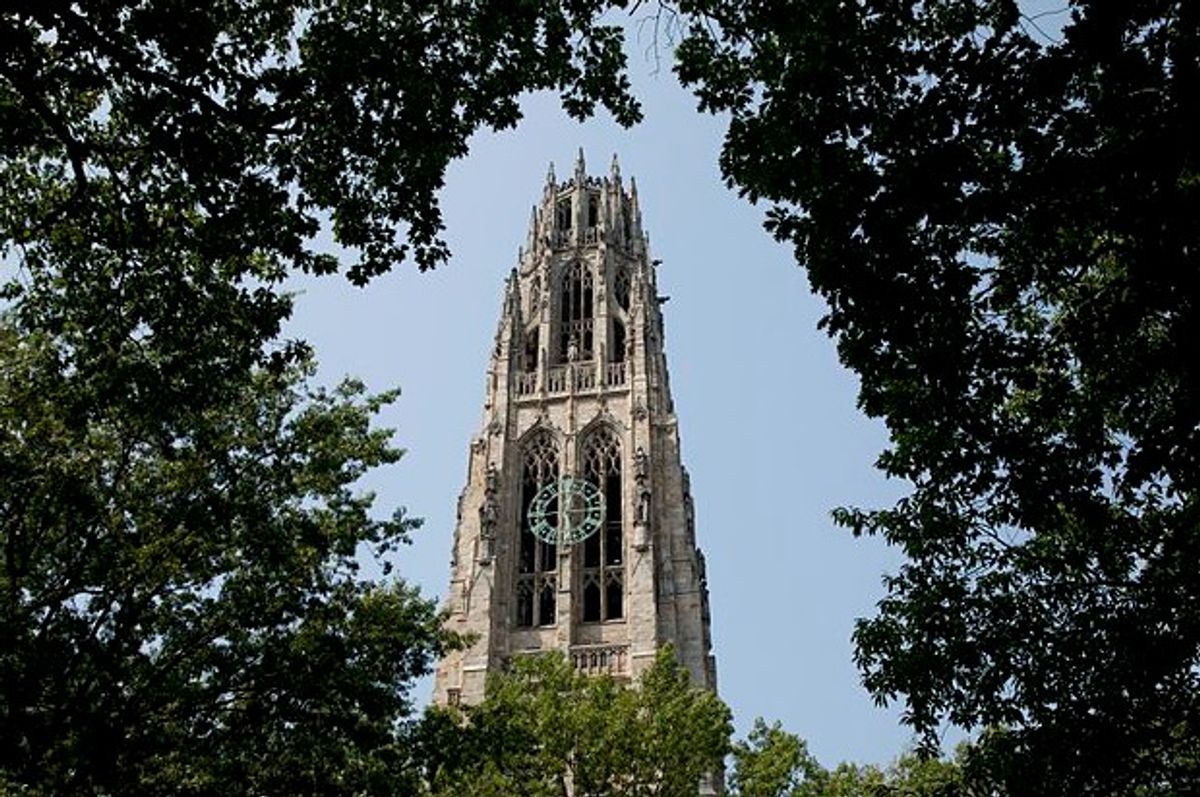You may not have noticed it, but America underwent a chilling transformation in the past week or so. The political correctness police have taken over and they're turning the country into a barren Stalinist wasteland where anyone who dissents from their tyranny will be purged.
That, anyway, is what many would have you believe after events at both Yale and the University of Missouri led to yet another conversation about the supposed threats to free speech being posed by college students.
There are multiple sources of this agitation. To sum up in extremely brief form: After Mizzou students successfully overthrew their president for his seemingly casual handling of a string of racist on-campus incidents, some of them got into tussles with journalists trying to cover the controversy. Meanwhile, Yale students are fighting with their university leadership after a professor objected to a campus email urging people not to dress in offensive Halloween costumes. (There are more intractable problems at Yale, but the Halloween issue lit the latest match.)
Cue the freakout. Piece after piece lambasted the (mostly black) students, accusing them of endangering free speech.
In what will likely be the peak of this hysteria, professor and pundit Glenn Reynolds wrote a USA Today op-ed calling for the voting age to be raised to 25 because Yale and Mizzou had shown that young people didn't deserve the privilege.
Displaying a prize-worthy lack of self-awareness, Reynolds chastises the students for being incapable of "weighing opposing ideas, or of changing their minds when they are confronted with evidence that suggests that they are wrong," after which he suggests that the people whose ideas he opposes should be stripped of their right to vote.
Uh, ok then. Can we all calm down for a second?
First of all, I went to Yale. Unless it has undergone a total transformation in the roughly five years since I left, I feel safe in saying that the views of white elites are under no mortal threat there. We're talking about a school that still carries the name of vicious racist John Calhoun on one of its residential colleges—not to mention one that had to deal with an incident of campus racism every year I was there. Yale could use a shakeup.
I am obviously not an expert on Mizzou, but black students there describe an environment of consistent racial hostility. Maybe we should think about what they're saying instead of getting sidetracked by some protesters' lack of respect for journalists? Nobody in the media should ever be physically harassed for doing their work, but the incident feels like one of the least important—and least representative—things going on at Mizzou.
What's really happening at both schools is this: We are in a moment of wrenching historical transition, whether we're talking about the digital revolution or the increasingly assertive civil rights, feminist and queer movements that have had such a potent impact on our discourse. Transitions are hard. They're messy and scary. Change opens new territory up for grabs, and people fight over who's going to own that territory.
That's what's going on at these universities. Students are testing the contours of their power. They're seizing the opportunity to stand up for themselves in ways that were not available to them even a couple of years ago. They're negotiating their place in the world. Some people will inevitably mess up when they do that. They'll go too far—especially in college, where things always get taken too far—and they'll get called out for it, and the world will keep turning.
But aren't the students themselves using their First Amendment rights? Isn't protest, even angry protest, a vital free speech activity? Don't black students have a right to get mad when their peers make a mockery of their culture on Halloween, or when their university president doesn't take the racism they're dealing with seriously? It's bizarre that so many people's concern for free speech only appears to go one way. Even if some find the tactics unacceptably heavy-handed, there is actually a robust exchange of ideas going on at these schools.
We're also living in a media culture that lunges towards any sign of controversy, strips it of all context, creates an endless national spectacle and turns it into a tiresome platform for the personal ideological concerns of whichever person is addressing the issue. (Guilty as charged.) It would probably help matters enormously if the national media stepped back for a minute, took a chill pill, and thought a little more deeply about what's the most important thing to focus on at both Yale and Mizzou.

Shares